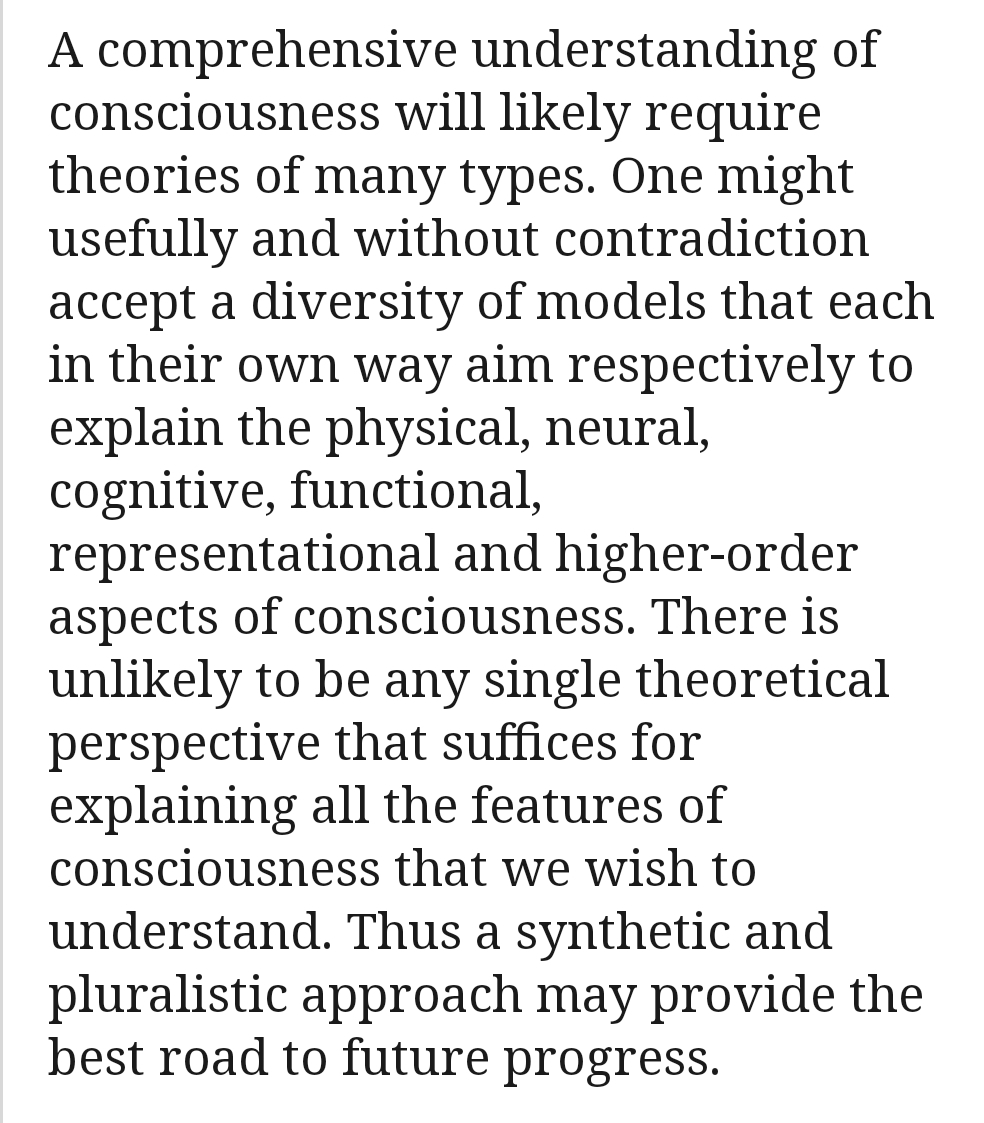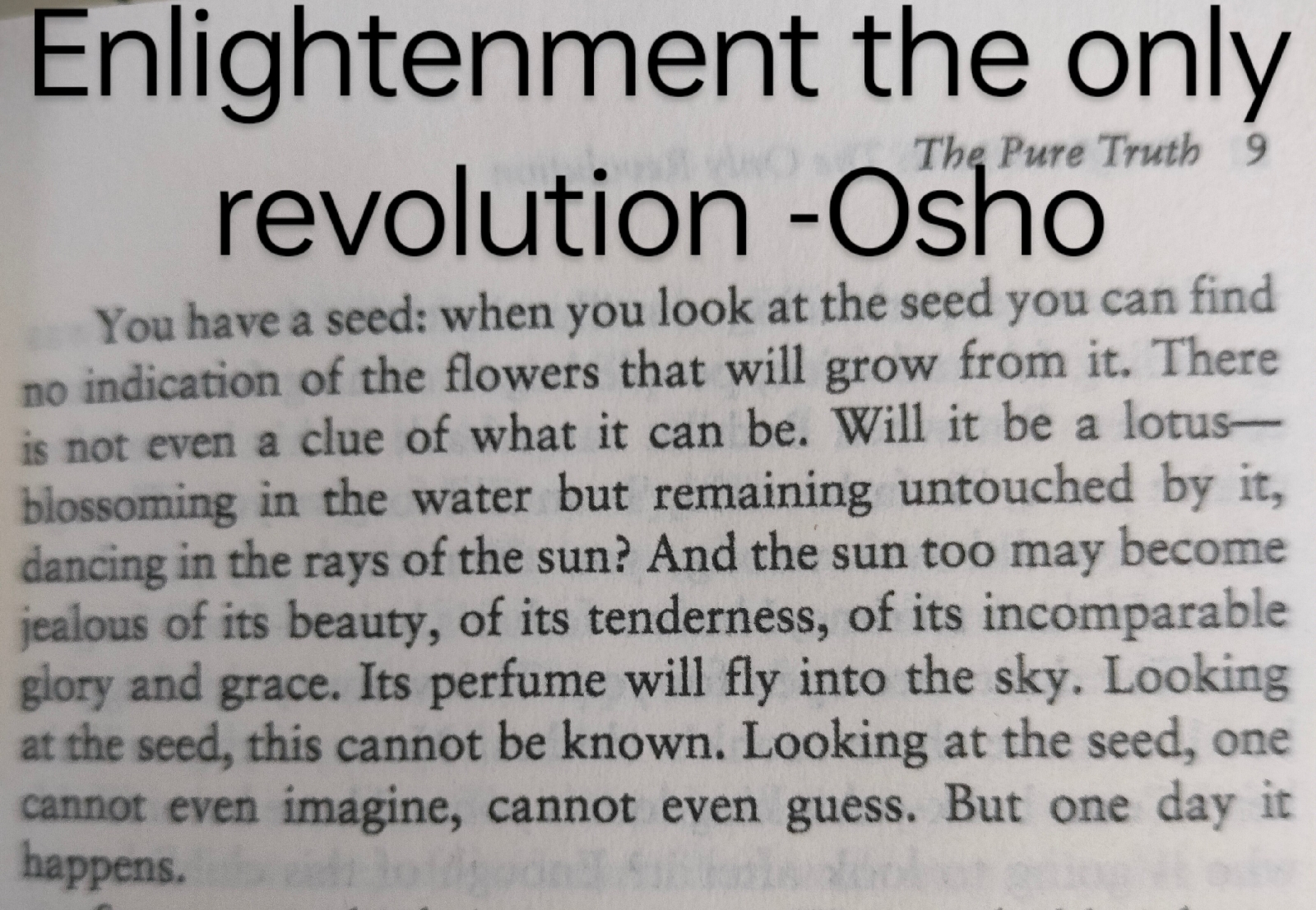Saturday, 30 September 2023
How to live life
Consciousness - 2
Consciousness 1 - verywellmind
Sunday, 17 September 2023
In a moment, in this moment
Sunday, 10 September 2023
Myself and My-Self / My-Selves
- Value, worth, dignity and esteem upholding authoritative, controlling self.
- Value, worth, dignity and esteem denying aggressive, persecuting self.
- Value, worth, dignity and esteem upholding helpful, assisting nurturing self.
- Value, worth, dignity and esteem denying rescuing self.
- Age appropriate, reality driven and orienting situation ending, problem solving sane, objective self.
- Little bothered, free of restraint, free flowing urges, impulses, drives driven self.
- Child-like creative, innovative, out of the box thinking, magical thinking unencumbered self.
- Child-like adapting but rebellious non complying, rules breaking self.
- Child-like adapting compliant, complying, extra courteous, pleasing self.
- A deep hidden aspect that sort of pulls the sheet from our feet, so to say, and nullifies a well done task, job, activity, piece of art, a tasty dish or a dress - aptly called the demon. It also from nowhere releases a slip of tongue, causes momentary withdrawal of attention from an ongoing activity, or triggers a self harming, impulsive act.
- The Material Self - This believes it owns and possesses. It includes all things that belong to us. Our body, whatever we own, our associations and whatever we hold dear including our thoughts, feelings, memories and experiences.
- The Social Self - Who we are in a given social situation. We change with time, place, position, role, purpose etc.
- The Spiritual Self - The Self with a Conscience that experiences right and wrong, guilt etc.
- Pure Self - This Pure Self provides continuity of existence through past, present and future.
Friday, 8 September 2023
Disposing Problems
As told by Osho in “The Dhammapada: The way of the Buddha”
A rich man, every night, pray the same prayer to God. He repeats his prayers again and again on a daily basis. In his words, he would ask, “God, please do one favor for me, at least one favor — and I have been asking this my whole life. As clearly as I know, I am the most unhappy man on the earth. Why have you made my life full of problems? I am ready to exchange my difficulties with anybody else, anybody will do — just let me exchange my troubles with somebody else. I don’t ask for bliss. Can’t you give me only this single opportunity to exchange my worries with somebody else? This is not much!”
And one night while he was in a dream he saw God. A heavenly voice came from the high above saying, “Gather all of your miseries into bags and bring them to the temple hall.”
So the whole town packs their miseries into big bags and they bring them to the hall. This man has a big-time: “So the time has come! It seems something great is going to happen!”
He rushes with his bundle. On the way, he finds others also are rushing.
By the time he reaches the hall, he becomes afraid, very afraid, because he saw people are carrying bigger bags than his. People that he had always seen smiling in beautiful clothes and always saying nice things to each other, and they are carrying bigger bags!
He starts becoming a little hesitant whether to go or not to go, but he has been praying for his whole life, so he says, “Let us see what happens.”
They enter into the hall. The voice says, “Put your bags around the hall.” They put their bags, and the voice says again, “Now you can choose any bundle that you like.”
And the miracle of miracles happens: everybody rushes to his own bags!
This man also rushes so fast towards his own bag, afraid that if somebody else chooses it then he will be at a loss. Everybody has chosen his own bags, with great relief and they are all happy, carrying their bags back to their homes. Even the man who prayed for his whole life just to exchange his miseries is very happy, for the simple reason that “Who knows what is in the other’s bags? At least we are aware of our own problems. And we have become accustomed, we have become adjusted to our difficulties.”
Moral of the story:
Problem solving is always better than exchanging it with others, At least you understand your problems and difficulties, now or then, you are going to find the solution to it. Just stay grateful for what good you have.
Thursday, 7 September 2023
Tuesday, 5 September 2023
Erase the Ego - Gain Spiritual Emancipation
Monday, 4 September 2023
Fallacies
Sourced from Wikipedia
Formal fallaciesEdit
A formal fallacy is an error in the argument's form.[2] All formal fallacies are types of non sequitur.
- Appeal to probability – a statement that takes something for granted because it would probably be the case (or might be the case).[3][4]
- Argument from fallacy (also known as the fallacy fallacy) – the assumption that, if a particular argument for a "conclusion" is fallacious, then the conclusion by itself is false.[5]
- Base rate fallacy – making a probability judgment based on conditional probabilities, without taking into account the effect of prior probabilities.[6]
- Conjunction fallacy – the assumption that an outcome simultaneously satisfying multiple conditions is more probable than an outcome satisfying a single one of them.[7]
- Non-sequitur fallacy - where the conclusion does not logically follow the premise.[8]
- Masked-man fallacy (illicit substitution of identicals) – the substitution of identical designators in a true statement can lead to a false one.[9]
Propositional fallaciesEdit
A propositional fallacy is an error that concerns compound propositions. For a compound proposition to be true, the truth values of its constituent parts must satisfy the relevant logical connectives that occur in it (most commonly: [and], [or], [not], [only if], [if and only if]). The following fallacies involve relations whose truth values are not guaranteed and therefore not guaranteed to yield true conclusions.
Types of propositional fallacies:
- Affirming a disjunct – concluding that one disjunct of a logical disjunction must be false because the other disjunct is true; A or B; A, therefore not B.[10]
- Affirming the consequent – the antecedent in an indicative conditional is claimed to be true because the consequent is true; if A, then B; B, therefore A.[10]
- Denying the antecedent – the consequent in an indicative conditional is claimed to be false because the antecedent is false; if A, then B; not A, therefore not B.[10]
Quantification fallaciesEdit
A quantification fallacy is an error in logic where the quantifiers of the premises are in contradiction to the quantifier of the conclusion.
Types of quantification fallacies:
- Existential fallacy – an argument that has a universal premise and a particular conclusion.[11]
Formal syllogistic fallaciesEdit
Syllogistic fallacies – logical fallacies that occur in syllogisms.
- Affirmative conclusion from a negative premise (illicit negative) – a categorical syllogism has a positive conclusion, but at least one negative premise
- Fallacy of exclusive premises – a categorical syllogism that is invalid because both of its premises are negative.[11]
- Fallacy of four terms (quaternio terminorum) – a categorical syllogism that has four terms.[12]
- Illicit major – a categorical syllogism that is invalid because its major term is not distributed in the major premise but distributed in the conclusion.[11]
- Illicit minor – a categorical syllogism that is invalid because its minor term is not distributed in the minor premise but distributed in the conclusion.[11]
- Negative conclusion from affirmative premises (illicit affirmative) – a categorical syllogism has a negative conclusion but affirmative premises.[11]
- Fallacy of the undistributed middle – the middle term in a categorical syllogism is not distributed.[13]
- Modal fallacy – confusing necessity with sufficiency. A condition X is necessary for Y if X is required for even the possibility of Y. X does not bring about Y by itself, but if there is no X, there will be no Y. For example, oxygen is necessary for fire. But one cannot assume that everywhere there is oxygen, there is fire. A condition X is sufficient for Y if X, by itself, is enough to bring about Y. For example, riding the bus is a sufficient mode of transportation to get to work. But there are other modes of transportation – car, taxi, bicycle, walking – that can be used.
- Modal scope fallacy – a degree of unwarranted necessity is placed in the conclusion.
- Informal fallacies
- Edit
- Main article: Informal fallacy
- Informal fallacies – arguments that are logically unsound for lack of well-grounded premises.[14]










